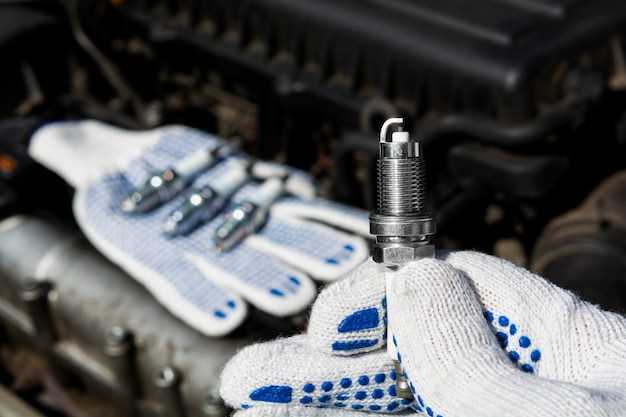
Engine additives are crucial components that significantly enhance the performance and longevity of your vehicle’s engine. By incorporating these specialized formulas into your engine oil or fuel, you can achieve improved lubrication, reduced friction, and increased efficiency. Understanding the various types of engine additives and their specific benefits is essential for any vehicle owner looking to maximize the health of their engine.
One primary advantage of engine additives is their ability to prevent wear and tear on engine components. As metal parts move against each other, the risk of damage increases over time. Additives such as anti-wear agents create a protective layer, minimizing direct contact and thereby extending the lifespan of essential engine elements. This protective measure not only lowers maintenance costs but also enhances the overall reliability of the vehicle.
Moreover, engine additives play a vital role in maintaining optimal engine cleanliness. Many additives are designed to dissolve and eliminate sludge, carbon deposits, and other contaminants that accumulate within the engine over time. By keeping the engine interior clean, these additives promote efficient combustion and improve fuel economy. With better fuel efficiency, vehicle owners can enjoy longer driving ranges and reduced emissions, contributing to a more eco-friendly driving experience.
In summary, the integration of engine additives in your maintenance routine can lead to remarkable improvements in engine health, efficiency, and longevity. Whether you are aiming to extend the life of your engine or simply enhance its performance, understanding and utilizing the right additives can make a significant difference.
Enhancing Engine Longevity with Quality Additives
Quality engine additives play a crucial role in prolonging the lifespan of an engine by addressing various performance issues and enhancing operational efficiency. These additives serve multiple functions, such as reducing friction, preventing wear, and improving lubrication, which collectively contribute to a smoother engine operation. By creating a protective barrier between metal surfaces, they minimize direct contact and friction, thereby reducing the risk of wear and tear over time.
Moreover, many engine additives are formulated to clean and maintain the internal components of the engine. They can disperse contaminants like carbon deposits and sludge, preventing buildup that could lead to reduced performance or engine failures. This cleaning action not only enhances the engine’s efficiency but also promotes better fuel atomization, resulting in improved combustion and reduced emissions.
Additives can also help to regulate engine temperatures by acting as heat transfer agents. By maintaining optimal operating temperatures, these additives reduce the strain on engine components, contributing to overall durability. Furthermore, certain formulations contain anti-oxidants that inhibit oil degradation, ensuring that the lubricant remains effective for longer periods, which is vital for maintaining engine health.
Investing in high-quality engine additives is therefore a strategic decision for vehicle owners looking to enhance engine longevity. Regular use can lead to significant savings on maintenance and repair costs over time, providing peace of mind and a more reliable driving experience. By incorporating these additives into routine maintenance, vehicle owners can ensure that their engines remain in peak condition for many miles to come.
Reducing Engine Wear: How Additives Protect Components

Engine wear is a natural process that occurs over time due to friction, heat, and contaminants. However, the use of additives can significantly reduce this wear, prolonging the life of engine components and enhancing overall performance. These additives serve multiple functions, ranging from lubrication enhancement to protective barriers against harmful particles.
One of the primary roles of engine additives is to improve lubrication. They create a thin film between moving parts, reducing direct metal-to-metal contact. This film minimizes friction, which is a key contributor to wear and heat generation. The right combination of additives ensures that the lubrication stays effective, even under extreme conditions.
Additionally, some additives are formulated with anti-wear agents that chemically bond to engine surfaces, creating a protective layer. This layer protects vital components, such as pistons and bearings, from the abrasive effects of wear. By doing so, it can significantly extend the service life of these components.
Moreover, engine additives often contain detergents and dispersants that help maintain cleanliness by preventing sludge and deposits from forming. Clean engines operate more efficiently, reducing the chances of wear caused by the accumulation of harmful residues.
In conclusion, incorporating quality engine additives into regular maintenance can greatly diminish engine wear. By improving lubrication, providing chemical protection, and maintaining engine cleanliness, these enhancements contribute to a more reliable and long-lasting engine.
Improving Fuel Efficiency: The Role of Engine Additives

Engine additives play a crucial role in enhancing fuel efficiency, leading to better overall engine health. These specialized formulations are designed to minimize friction, reduce deposits, and promote cleaner combustion within the engine.
One of the primary benefits of engine additives is their ability to reduce friction between moving parts. By creating a smoother interface, additives help the engine components work more efficiently, which translates to less fuel consumption. This is particularly important in high-performance engines that are subjected to extreme conditions.
Additionally, engine additives help to clean the fuel system and combustion chamber by breaking down carbon deposits and other impurities. When the engine operates with fewer contaminants, it can burn fuel more completely, resulting in improved efficiency. This cleaner operation not only enhances performance but also contributes to the longevity of the engine.
Maintaining engine health is another key aspect influenced by engine additives. Regular use of these products can prevent wear and tear, thereby extending the life of critical engine components. A healthy engine is more likely to perform optimally, which ultimately leads to better fuel economy.
In summary, engine additives offer significant advantages in improving fuel efficiency while ensuring the health of the engine. By reducing friction and keeping the fuel system clean, these additives contribute to a more economical and durable engine operation.



